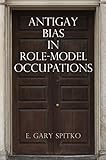Antigay Bias in Role-Model Occupations / E. Gary Spitko.
Material type: TextSeries: Pennsylvania Studies in Human RightsPublisher: Philadelphia : University of Pennsylvania Press, [2016]Copyright date: ©2017Description: 1 online resource (288 p.)Content type:
TextSeries: Pennsylvania Studies in Human RightsPublisher: Philadelphia : University of Pennsylvania Press, [2016]Copyright date: ©2017Description: 1 online resource (288 p.)Content type: - 9780812248708
- 9780812293487
- Discrimination in employment -- Law and legislation -- United States
- Discrimination in employment -- United States
- Gays -- Employment -- Law and legislation -- United States
- Gays -- Employment -- United States
- POLITICAL SCIENCE / Human Rights
- Business
- Economics
- Gay Studies
- Gender Studies
- Human Rights
- Law
- Lesbian Studies
- Queer Studies
- 344.7301/53 23
- online - DeGruyter
- Issued also in print.
| Item type | Current library | Call number | URL | Status | Notes | Barcode | |
|---|---|---|---|---|---|---|---|
 eBook
eBook
|
Biblioteca "Angelicum" Pont. Univ. S.Tommaso d'Aquino Nuvola online | online - DeGruyter (Browse shelf(Opens below)) | Online access | Not for loan (Accesso limitato) | Accesso per gli utenti autorizzati / Access for authorized users | (dgr)9780812293487 |
Frontmatter -- Contents -- Preface -- Chapter 1. Exclusion from a Public Social Space Defined by Qualities and Values -- Chapter 2. Wielding Employment Discrimination Against Gay Lawyers as a Sword and a Shield -- Chapter 3. Defending the Masculine Identity of the Military and Its Service Members -- Chapter 4. Teaching Th at Homo sexuality Is Immoral -- Chapter 5. Representing the Electorate's Values -- Chapter 6. Promoting the All- American Image of Major League Sports -- Chapter 7. Maintaining a Distance Between Gay People and God in Defense of Greater Orthodoxies -- Conclusion. The Importance of Teaching the Qualities and Values of Gay People -- Notes -- Index -- Acknowledgments
restricted access online access with authorization star
http://purl.org/coar/access_right/c_16ec
From the first game of the National League of Professional Baseball Clubs on April 22, 1876, tens of thousands of men have played professional sports in the Big Four-baseball, basketball, football, and hockey-major professional sports leagues in the United States. Until April 29, 2013, however, when National Basketball Association center Jason Collins came out publicly as gay, not one of those tens of thousands of men had ever come out to the public as gay while an active player on a major league roster. Is it because gay men can't jump (or throw, or catch, or skate)? Or is it more likely that the costs of coming out are too high?In Antigay Bias in Role-Model Occupations, E. Gary Spitko argues that in the case of athletes, and others in role-model occupations, a record of widespread and frequently systematic employment discrimination has been excluding gay people from the public social spaces that identify and teach whom society respects and whom members of society should seek to emulate. Creating a typology of role models-lawyers/judges, soldiers, teachers, politicians, athletes, and clergy-and the positive values and character traits associated with them, Spitko demonstrates how employment discrimination has been used for the purpose of perpetuating the generally accepted notion that gay people are inferior because they do not possess the requisite qualities-integrity, masculinity, morality, representativeness, all-American-ness, and blessedness-associated with employment in these occupations.Combining the inspirational stories of LGBT trailblazers with analysis of historical data, anecdotal evidence, research, and literature, Antigay Bias in Role-Model Occupations is the first book to explore in a comprehensive fashion the broad effects of sexual orientation discrimination in role-model occupations well beyond its individual victims.
Issued also in print.
Mode of access: Internet via World Wide Web.
In English.
Description based on online resource; title from PDF title page (publisher's Web site, viewed 30. Aug 2021)


